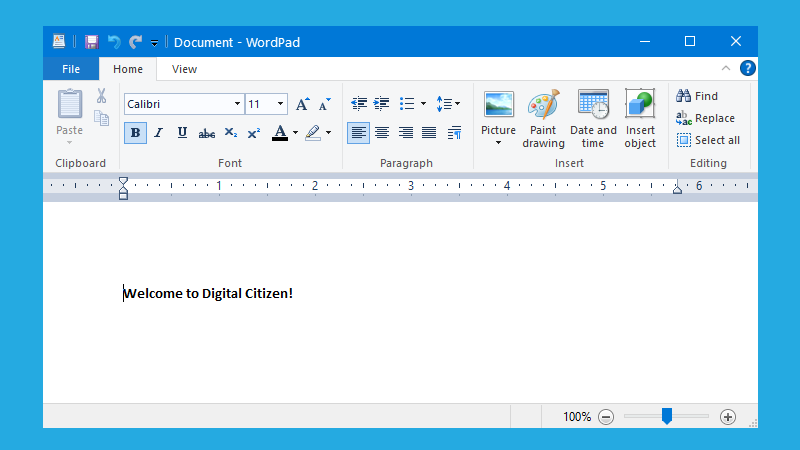In a move that marks the end of an era, Microsoft has announced the removal of WordPad from its Windows operating system. This iconic text editor, which has been a part of Windows since its 95 version, will no longer be available in future releases. The decision has sparked conversations about the evolution of text editors and what this means for long-time Windows users.
A Brief History of WordPad
WordPad first appeared as part of Windows 95 and quickly became a staple for users who needed more features than Notepad but less complexity than Microsoft Word. Over the years, however, the application has not seen updates, making it increasingly obsolete in a world of advanced text editors and word processors.
Why is WordPad Being Removed?

Microsoft has not provided specific reasons for the removal, but it’s clear that the application has not been updated for a long time. In a bulletin about deprecated features, Microsoft stated that WordPad would no longer receive updates and would be unavailable in future versions of Windows.
The company recommends Microsoft Word for rich text documents and Windows Notepad for simpler text files.
User Reactions and Alternatives
The announcement has been met with mixed reactions from the Windows community. While some see it as a necessary step in the evolution of Windows, others are nostalgic about the loss of a simple, straightforward text editor.
For those looking for alternatives, Microsoft Word offers a comprehensive set of features for text editing, and Notepad remains an option for simpler tasks.
Read: 5 Best Microsoft Word Alternatives for Mac and Windows
The Impact on Legacy Systems
One of the significant concerns arising from this decision is the impact on legacy systems that still rely on WordPad for basic text editing tasks. Organizations and individual users who have built workflows around WordPad will need to find alternatives and revamp their processes.
What’s Next for Text Editors on Windows?
The removal of WordPad signals a shift in Microsoft’s approach to built-in applications on Windows. The company will likely focus on more advanced and frequently updated applications like Microsoft Word and OneNote for text editing needs. This opens up opportunities for third-party text editors to gain more traction among Windows users.
Conclusion
The removal of WordPad from Windows is more than just the deprecation of an application; it’s the end of an era for a tool that has been a part of the Windows experience for nearly three decades. As Windows continues to evolve, it’s clear that some of the older, less frequently updated features will make way for newer, more advanced options.
While WordPad may be saying its goodbyes, its departure paves the way for more modern and capable text editors to take the stage.
You Might Also Read:
- How To Check Word Count in Google Docs [Android, iOS, PC]
- Best Alternatives To Microsoft Word For Android & iOS [iPhone & iPad]



